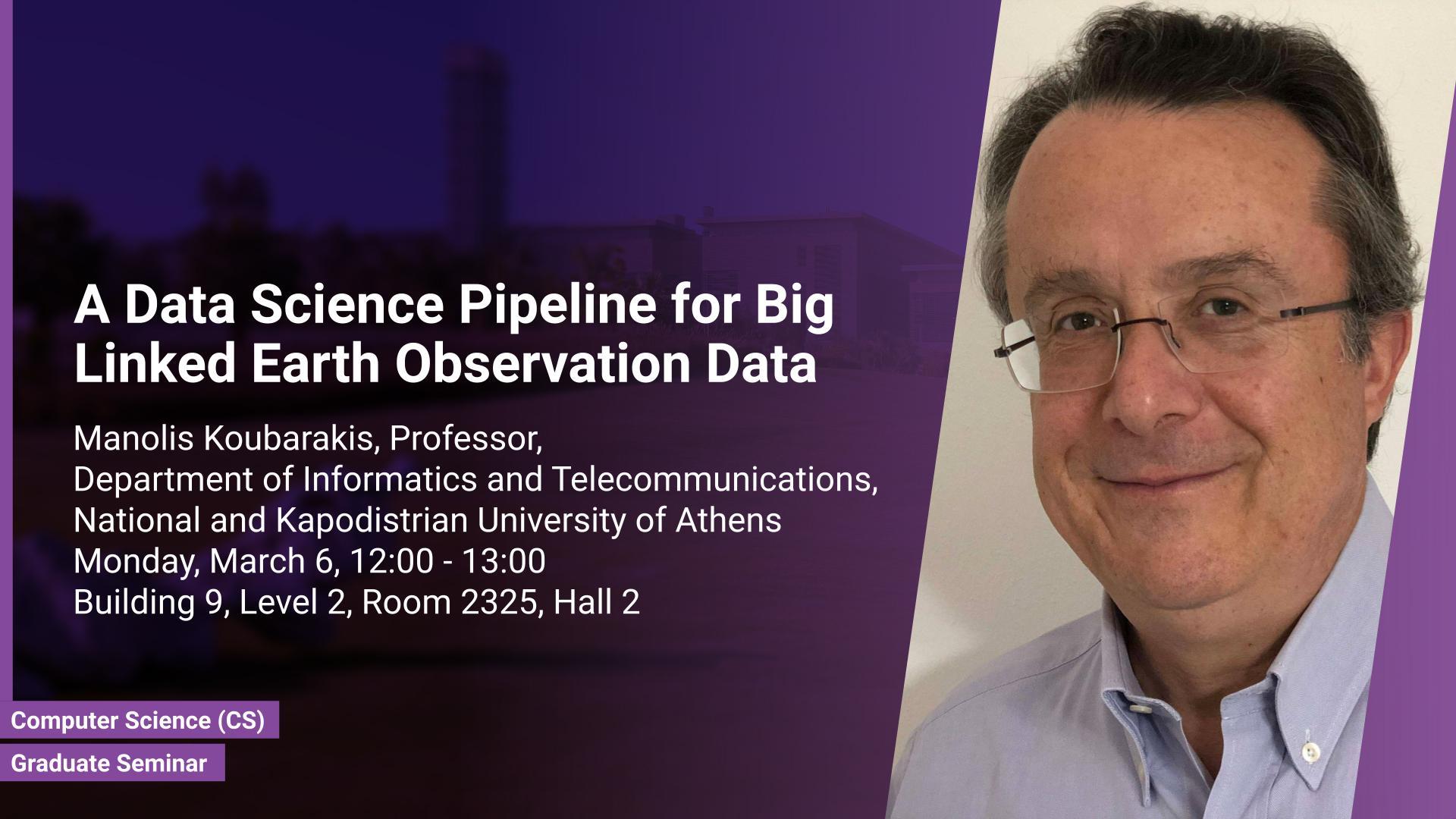Abstract
I will present a data science pipeline which starts with Earth observation data arriving in the ground segment of a satellite mission and ends with a complete user application. I will first briefly present all the tools my group has been developing since 2010 for supporting the various stages of the pipeline. Then, I will concentrate on the recently developed system Strabo 2 which can store big geospatial data encoded in RDF and query them using the Open Geospatial Consortium standard GeoSPARQL. Strabo 2 is the only parallel and distributed RDF store available today that can manage terabytes of geospatial data efficiently.
Brief Biography
Manolis Koubarakis is a Professor and Director of Graduate Studies in the Dept. of Informatics and Telecommunications, National and Kapodistrian University of Athens. He leads the Artificial Intelligence team (http://ai.di.uoa.gr ). He holds a Ph.D. in Computer Science from the National Technical University of Athens, an M.Sc. in Computer Science from the University of Toronto, and a diploma (B.Sc.) in Mathematics from the University of Crete. He is a Fellow of EurAI (European Association for Artificial Intelligence) since 2015, Secretary of the EurAI Board since 2022, and previous President of the Hellenic Association for Artificial Intelligence. He is a member of the Advisory Board that implements the Hellenic National Strategy for Artificial Intelligence. He has published more than 200 papers that have been widely cited (7800 citations and h-index 46 in Google Scholar) in the areas of Artificial Intelligence (especially Knowledge Representation and Constraint Programming), Databases (especially temporal and spatial databases), Semantic Web, Knowledge Graphs and Linked Data (especially geospatial and Earth observation data), and Deep Learning for Natural Language Processing. His research has been financially supported with a total amount exceeding 9 million Euros by the European Commission, the Hellenic Foundation for Research and Innovation, the Greek General Secretariat for Research and Technology, the European Space Agency and industry.
